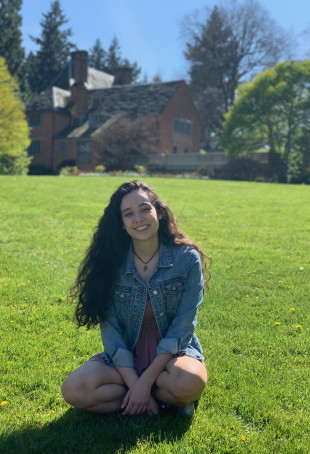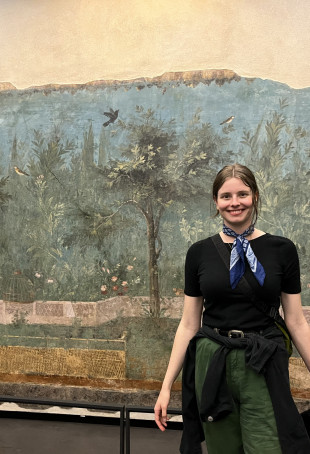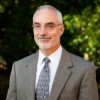- <a href="/live/image/gid/399/width/650/100338__MG_9480.JPG" class="lw_preview_image lw_disable_preview" tabindex="-1"><picture class="lw_image lw_image100338"> <source type="image/webp" media="(max-width: 500px)" srcset="/live/image/gid/399/width/500/height/479/crop/1/100338__MG_9480.rev.1695265422.JPG 1x, /live/image/scale/2x/gid/399/width/500/height/479/crop/1/100338__MG_9480.rev.1695265422.JPG 2x, /live/image/scale/3x/gid/399/width/500/height/479/crop/1/100338__MG_9480.rev.1695265422.JPG 3x"/> <source type="image/webp" media="(min-width: 501px)" srcset="/live/image/gid/399/width/720/height/690/crop/1/100338__MG_9480.rev.1695265422.JPG 1x, /live/image/scale/2x/gid/399/width/720/height/690/crop/1/100338__MG_9480.rev.1695265422.JPG 2x, /live/image/scale/3x/gid/399/width/720/height/690/crop/1/100338__MG_9480.rev.1695265422.JPG 3x"/> <source type="image/jpeg" media="(max-width: 500px)" srcset="/live/image/gid/399/width/500/height/479/crop/1/100338__MG_9480.rev.1695265422.JPG 1x, /live/image/scale/2x/gid/399/width/500/height/479/crop/1/100338__MG_9480.rev.1695265422.JPG 2x, /live/image/scale/3x/gid/399/width/500/height/479/crop/1/100338__MG_9480.rev.1695265422.JPG 3x"/> <source type="image/jpeg" media="(min-width: 501px)" srcset="/live/image/gid/399/width/720/height/690/crop/1/100338__MG_9480.rev.1695265422.JPG 1x, /live/image/scale/2x/gid/399/width/720/height/690/crop/1/100338__MG_9480.rev.1695265422.JPG 2x, /live/image/scale/3x/gid/399/width/720/height/690/crop/1/100338__MG_9480.rev.1695265422.JPG 3x"/> <img src="/live/image/gid/399/width/720/height/690/crop/1/100338__MG_9480.rev.1695265422.JPG" alt="Professor Kelly with students at an archeological dig site in Vacone, Italy in 2023." width="720" height="690" srcset="/live/image/scale/2x/gid/399/width/720/height/690/crop/1/100338__MG_9480.rev.1695265422.JPG 2x, /live/image/scale/3x/gid/399/width/720/height/690/crop/1/100338__MG_9480.rev.1695265422.JPG 3x" data-max-w="3200" data-max-h="2133" loading="lazy"/> </picture> </a><div class="hero-split_image_caption collapsable-caption"> Professor Kelly with students at an archeological dig site in Vacone, Italy in 2023.</div>
Classics
Our Classics program brings the cultures of ancient Greece and Rome to life in ways that transcend a single academic discipline. You can choose courses on a wide variety of subjects, including art, history, literature, philosophy, politics, and religion.
Why Choose a Degree in Classics?
By exploring Greco-Roman cultures from a variety of disciplinary perspectives, Classics majors and minors gain critical thinking, research, writing, and discussion skills that will serve them well in any endeavor they pursue after graduation.
What You’ll Study
Our curriculum is interdisciplinary. We offer two major concentrations—Classical civilizations and ancient language. All Classics degrees include Classical Latin or ancient Greek, allowing students to study significant works from antiquity in their original language.
Many of our students earn course credit while on an overseas program. In addition to general cultural programs that are open to all students, the Greece program, based in Athens and on the island of Lesbos, enables our students to personally encounter the world of antiquity through extensive study of archaeological sites.
Outside the classroom, the Classics Colloquium series invites scholars from Lewis & Clark and other institutions to lecture on their research. With the help of L&C faculty-student research grants, several students have participated in an archaeological excavation of an ancient Roman villa in Italy and presented the results of their work at the colloquium, as well as at regional conferences.
Complement Your Education With One of These Minors
The most popular minors for our Classics majors are English, history, and religious studies.
What Students Are Saying About Lewis & Clark
- Ashleen Smith BA ’23
My Classics and English professors are my mentors. They nurture my interest in the subjects, and they support me in developing my research and writing skills.
English | Classics | Madras, OregonMore about Ashleen - Juliana Prendergast BA ’20
Throughout the last four years, my classes, professors, and experiences in the ENVS program have helped me learn how to address multiple sides of environmental issues and understand multiple viewpoints.
Environmental Studies | Classics | Skaneateles, New YorkMore about Juliana
What Can You Do With a Degree in Classics?
Our alumni use their BA in Classics to pursue a wide range of careers within academia, nonprofits, and beyond. While some students pursue an advanced degree, others apply their critical thinking, research, writing, and discussion skills to many areas other than Classics.
Dedicated Faculty
Our expert professors are your expert mentors. You will learn directly from faculty (no graduate assistants here!) that are nationally recognized in their fields of study and who love to work with and learn from their students. Your professors will inspire you to be a thoughtful and passionate participant in a diverse world. Your small classes will support you as you explore new ideas, find your voice, and speak your truth.
The core Classics faculty has won several teaching awards, both national and regional. Our program is one of the few in the country that has included two Society for Classical Studies Excellence in Teaching award winners.
- 1 of 7
L&C is one of seven Oregon schools to make the national Colleges of Distinction list in 2023–24.
- 10%
of our undergraduate students are from outside the U.S.
- Value
Lewis & Clark is on U.S. News & World Report’s 2023–24 “Best Value Schools” list.
- 29+33
Lewis & Clark offers 29 majors and 33 minors.
- 15%
first-generation students at Lewis & Clark College
Invest in Yourself
A private liberal arts education is often more affordable than you think. Last year, Lewis & Clark distributed over $74 million in assistance from institutional, federal, state, and private sources. Additionally, we’re so confident that our first-year students will graduate with their bachelor of arts degree in four years that if you don’t, we’ll cover the extra semester of tuition.
Find Your People
Students can join a variety of student-run organizations. Don’t see what you’re looking for on the club list? Start something new and build your own community of peers!
Where Lewis & Clark Will Take You
- Claire Lyman BA ’18
We have the best professors at Lewis & Clark—especially in the art history department! The classes I took with Dawn Odell, Ben David, and Matt Johnston prepared me for the rigor of a PhD program.
Art History | Classics | Wilmette, IllinoisMore about Claire



